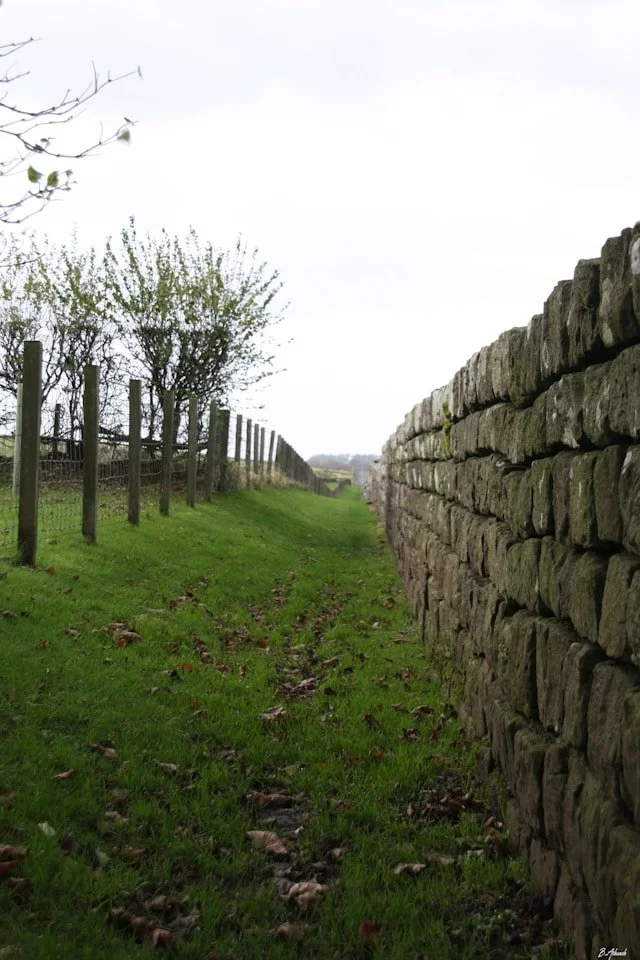Division and Diversity
Photo by Brett Achurch
“When there is no enemy within, the enemy outside cannot hurt you.” —Winston S. Churchill
By Sterling M. Hawkins, MSW, LCSW-C, LICSW
“Mending Wall” is the first poem in a collection of poems titled North of Boston by Robert Frost. The poem has forty-five lines and is not divided into stanzas. There are no rhymes. This poem, like others by Frost, portrays nature in the New England countryside and the people who live there. Frost uses nature to teach us about life. (Mending Wall, 2024)
The poem contrasts two types of persons, represented by the narrator (the primary character) and the neighbor (a secondary character), who highlights the disengenuous tone of the narrator. The narrator is evasive, deceitful, and negative, whereas the neighbor is honest, succinct, and positive. The only statement we hear from the neighbor is, “Good fences make good neighbors.” This contrasts sharply with the narrator’s line— “Something there is that doesn’t love a wall.”
There’s a conversational tone between the narrator and the neighbor. Both men have different ideas about what makes a person a good neighbor. The conversation between the two men spans years. The narrator seeks to convince the neighbor of the wall’s futility and cites several reasons that a wall is not necessary. The narrator suggests that neither of the men keep livestock. And, that the forces of nature- “the frozen ground” and the forces of men, “the work of the hunters” erode all efforts to achieve permanence.
Underlying Frost’s account of the two men’s differing outlook on their shared fence is a question: Are boundaries necessary to maintain relationships between people? Although the narrator believes borders are not needed, the adage repeated by the neighbor— “Good fences make good neighbors,” ironically is observed in the relationship between them. In this poem the wall represents the differences between people and property.
As I travel the countryside of Ireland I observe many stone walls that divide property and pasturelands. Some are centuries old and have been damaged by the forces of nature and the forces of men. Others were built more recently or have been repaired. I listen to our tour guide describe Ireland’s history of division and diversity, and like in the poem reflect on how division and diversity helped to create tolerance and respect for differences. World leaders often refer to this mending as international diplomacy that encourages negotiation, dialog, cooperation and shaping peaceful resolutions. Such efforts influence the citizenry, It influences us, who we are and who we will become.
Relationships require us to be genuine, to acknowledge everything that we witness, even when it becomes uncomfortable to do so. And, even where differences and disagreements remain. As writer Margaret Renkl beautifully illustrates in her own reflection on Mending Wall. She writes— “Truth sometimes dawns too late. Time shifts more than stones. Tumbled down walls can’t always be mended.”
As I examine my own relationships I have reached a similar conclusion. I am learning to view my relationships through a wide-angled lens. Accepting like the neighbor that there are walls that should remain undisturbed, but not misunderstood. These boundaries serve to define who I am and what I believe, and distinguish me from my neighbors and what they believe. And that a world with fences makes good neighbors by minimizing conflicts and misunderstandings, creating a sense of mutual respect and allowing my neighbors and I to coexist peacefully.
___________________________________________________
References:
Mending wall. (2024, June 22). The Poetry Foundation. https://www.poetryfoundation.org/poems/44266/mending-wall
Renkl, M. (2023, June 4). https://www.nytimes.com/2025/06/02/opinion/robert-frost-neighbors-fences.html. New York Times.
